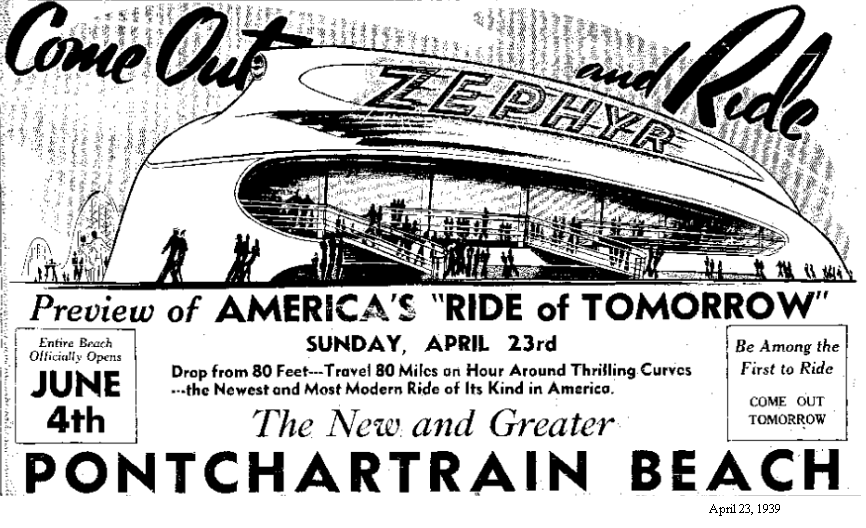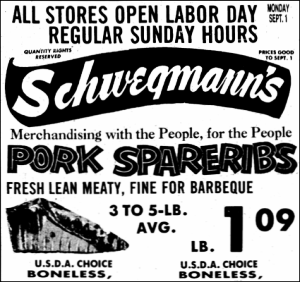|
Today in New Orleans History |
|
|
December 24


  Born in New Orleans
on December 24, 1924, Irvin Lee Dorsey was a childhood friend of Fats Domino before moving to Portland, Oregon when
he was ten years old. He served in the Navy in World War II and then began a career in prizefighting. Boxing as
a lightweight in Portland in the early 1950s, he fought under the name Kid Chocolate and was reasonably
successful. He retired from boxing in 1955 and returned to New Orleans, where he opened an auto repair business
while singing in clubs at night. He owned Automotive Clinic at 1724 North Rampart Street during the 1960s, Lee's Auto
Repair at 2073 North Tonti during the 1970s, and Lee Dorsey's Ya Ya Lounge at 130 North Villere. His first recording was "Lottie Mo", for the small Valiant label in 1958 was picked up by ABC Paramount in 1961. He also recorded for the Rex
label. These efforts were unsuccessful, but around 1960 he was discovered by A&R's Marshall Sehorn, who
secured him a contract with Fury Records, owned by Bobby Robinson. After meeting songwriterand record
producer Allen Toussaint at a party, Dorsey recorded "Ya! Ya!", a song inspired by a group of children chanting nursery rhymes. It went to number seven on the Billboard Hot
100 in 1961, sold over one million copies, and was awarded a gold disc. Although the follow-up "Do- Re- Mi" also made the charts, later releases on Fury were not successful. Dorsey returned to running his repair business but
also released singles on the Smash and Constellation labels in 1963 and 1964. He was approached again by Toussaint, and recorded Toussaint's song "Ride Your Pony" for the Amy label, a subsidiary of Bell Records. The song reached number.7 on the R&B chart in late
1965, and he followed it up with "Get Out Of My Life Woman", "Working in the Coal Mine" – his biggest pop hit – and "Holy Cow", all of which made the pop charts in both the US and the UK. Dorsey toured internationally, and also
recorded an album with Toussaint, The New Lee Dorsey: Working in the Coal Mine / Holy Cow in 1966. In 1970 Dorsey and Toussaint collaborated on the album Yes We Can; the title song was Dorsey's
last entry in the US singles chart. It was later a hit for the Pointer Sisters under the title, "Yes We Can". With declining sales, Dorsey then returned to his auto repair business. In 1976 Dorsey appeared on the album I Don't Want to Go Home by Southside Johnny and the Asbury
Jukes, which led to more recordings on his own with ABC Records, including the album Night People. In 1980, he opened
for English punk band The Clash on their US concert tour, and also toured in support of James
Brown and Jerry Lee Lewis.
 

And You won't pay a penny more! To receive an update for each day in New Orleans history,
join our facebook page - Today in New
Orleans History
Edward Rightor Schowalter, Jr., born in New Orleans on December 24, 1927 and
a Metairie High School graduate, received the U.S. military's highest decoration, the Medal of Honor for for commanding his
company in an assault in Korea against a fortified position, and for continuing to lead after being seriously wounded.
He was also the recipient of the the Silver Star and two Purple Hearts. Schowalter died on November 21, 2003 at age 75.
|
|
|

To receive an update for each day in New Orleans history,
join our facebook page - Today in New
Orleans History.
Analytics |



